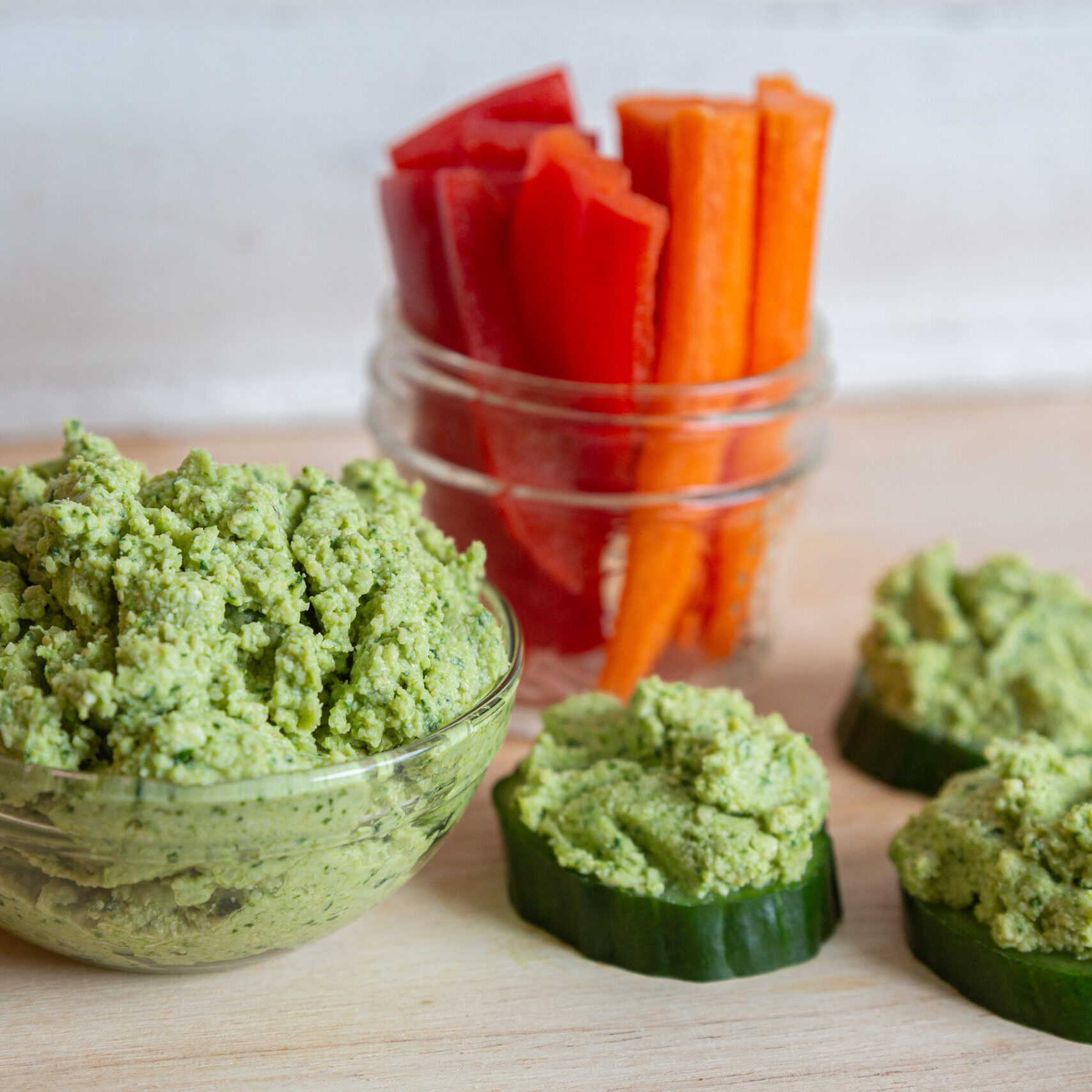Welcome To My Culinary & Holistic Lifestyle Blog!
In Pursuit of Optimal Digestive Health
What's The Deal With Vitamin K2?

What's the deal with Vitamin K2?!
Well...it's a BIG deal!
I sure learned A LOT about the critical relationship and interactions that occur between the minerals Calcium and Magnesium, along with Vitamin D (actually a hormone) and Vitamin K2, upon getting my hands on the book 'Vitamin K2 and the Calcium Paradox: How a Little-Known Vitamin Could Save Your Life' (Kate Rhéaume-Bleue, BSc., N.D.).
This book is a suitable read for anyone (practitioner or not), interested in deepening their knowledge and understanding of bone health...learning how to effectively nourish the body in a way that these four bone health nutrients can work their magic in the body!
As this blog post is simply an overview of some of the key ideas this book has to offer (trust me, I took A LOT of notes on my computer as I read it!), I encourage you to seek out further guidance as you require it...whether taking a full read of this book, tapping into the wisdom and expertise of your practitioner of choice, or both!
As always, nutrient fuel should primarily come from WHOLE, REAL, ANTI-INFLAMMATORY FOODS suitable for your personal health needs, relying on natural supplementation for therapeutic purposes, and only as needed.
A qualified practitioner should be guiding and monitoring any natural supplementation use, so that it is not only customized to exactly what you need in terms of daily dose and ideal timing throughout the day, but so that you're taking it in the most 'bio-available' (easily-absorbed/used) form for your body to then benefit from!
If you are challenged with nutrient malabsorption (as determined by bloodwork or other functional testing), due to an inflamed and damaged gut lining and imbalanced gut microbiome, particular foods and natural supplement nutrients may not be absorbed very well. Therefore, getting to (and supporting!) the root cause of inflammation and imbalances in the body is STEP #1!
An overview of 4 particular bone health nutrients, and what they do for YOU!
CALCIUM
- Beyond supporting bone health, supports muscular contraction and nerve conductivity
- If supplementing with Calcium, it should be supplemented in a 2:1 ratio with Magnesium, as these minerals function hand-in-hand (Magnesium supports the relaxation phase that follow’s Calcium’s contraction phase)
- Ineffective Calcium supplementation (without that of Magnesium, Vitamin D and Vitamin K2) can set the stage for having Calcium deposit in undesired areas of the body (e.g. in the arteries, as opposed to in bone)[i] - this helps explain the correlation between Heart Disease and Osteoporosis[ii]
- Ineffective metabolism (breakdown and use of this mineral in the body) is the result of Vitamin K2 deficiency in the body[iii]
- Calcium-rich foods include dark/leafy greens, broccoli (any green vegetable), raw almonds, figs, wild-caught canned salmon...
MAGNESIUM
- The Anti-Stress mineral
- Is just as important as Calcium for optimal bone health[iv]
- A critical mineral that helps balance the metabolism (breakdown and use) of Calcium in the body[v] - also required for the absorption and metabolism of Vitamin D[vi]
- Supports the reduction of blood pressure[vii]
- Magnesium-rich foods include dark/leafy greens, dark chocolate, raw pumpkin seeds, raw almonds...
VITAMIN D3
- Functions as a hormone, despite its label as a vitamin
- The popularity of supplementing Vitamin D (provided how naturally-deficient we are as Canadians), can be contributing to the challenge of poor bone mineral deficiency if it is not being supplemented in combination with Vitamin K2[viii]
- Vitamin D supports Calcium absorption in the intestines, yet once Calcium is absorbed into the bloodstream, Vitamin D has no authority over where that Calcium ends up in the body - this poses a problem[ix]
- While some Calcium will end up supporting your bone, some portion of it may end up deposited in your arteries[x] because it becomes free to run where it chooses once absorbed[xi]
- Alongside Vitamin A, Vitamin D helps produce the proteins that Vitamin K2 activates in the body for appropriate location of Calcium deposit[xii]
- Vitamin D-rich foods include fatty fish (e.g. wild-caught salmon, mackerel), cod liver, oil, sardines, (eggs and mushrooms contain some)...
VITAMIN K2
- A vitamin NOT to be confused with Vitamin K1 (responsible for blood coagulation)
- Vitamin K2 shuttles Calcium INTO THE BONES, so it may then help strengthen bone mineral density[xiii], as opposed to allowing it to deposit along the walls of the arteries once absorbed by the intestines with the help of Vitamin D[xiv]
- Therefore, Vitamin K2 assists with combating bone fractures[xv]
- When K2 is plentiful in the body, bone mineral density remains strong and the arteries remain free of undesired Calcium deposits[xvi]
- Vitamin K2 intake is sourced both from the diet and from intestinal bacteria; however, the trace amounts produced in the intestinal tract are not enough to prevent a Vitamin K2 deficiency, so dietary sources are required[xvii]
- If an individual has past history of antibiotic use, or any other health-related condition in which their beneficial gut bacteria have been compromised in some way, very little Vitamin K2 (if any at all) would be produced in the individual’s intestinal tract[xviii]
The food industry, as we know it, unfortunately makes Vitamin K2 challenging to come by! It is particularly challenging to obtain this nutrient if you choose to follow a vegetarian diet (depending on the flexibility level of the vegetarian diet) or if vegan.
When animals grazed strictly on pasture, Vitamin K2 was much more plentiful in our food supply![xix] This is because chlorophyll (the pigment that makes plants green) and Vitamin K1 (and its later conversion into Vitamin K2) are closely linked.[xx]
Conventional sources of animal products, as we know, do not contain the same nutritional profiles as that of their grass-fed/grass-finished counterparts.
Some of the most concentrated food sources of K2 include:[xxi]
- Natto
- Fermented soybeans – the richest food source
- Fermented soy from an organic source IS health-promoting and provides a source of beneficial (probiotic) gut bacteria
- Particular types of hard and soft cheeses
- Dutch Gouda style, French Brie style...
- Egg yolk, butter and lard from grass-fed/grass-finished cows
- Grass-fed/grass-finished butter also contains Vitamins A and D
- Grass-fed/grass-finished meat
*Ghee (clarified butter - from a grass-fed/grass-finished source) is also an option, particularly as a health-promoting cooking fat[xxii]
Other fermented foods contain small amounts of Vitamin K2, but the degree to which they do varies widely, due to the variety of bacteria used/generated during the fermentation process
Here's what you need to know!
We require both Vitamin D and Vitamin K2 to reap the benefits that both of these critical nutrients have to offer! To truly improve bone density, supplementing both nutrients together is most valuable and effective.[xxiii]
As we reach peak bone mass by approximately the age of 20, it becomes our responsibility to then maintain that desired bone density moving forward. As we age; the degree to which we retain this degree of bone density is largely associated with Vitamin K2 levels in the body.[xxiv]
If you end up investing in this book and exploring this topic further yourself, tag me on Facebook or Instagram with your own copy (or a source of Vitamin K2 that you're enjoying!), letting me know what you think of it, too!
Enjoy!
ENDNOTES
[i] Rhéaume-Bleue, K. (2012). Vitamin K2 and the Calcium Paradox: How a Little-Known Vitamin Could Save Your Life (p.5). Toronto, ON, Canada: HarperCollins Publishers Ltd.
[ii] Rhéaume-Bleue, K. (2012). Vitamin K2 and the Calcium Paradox: How a Little-Known Vitamin Could Save Your Life (p. 5). Toronto, ON, Canada: HarperCollins Publishers Ltd.
[iii] Rhéaume-Bleue, K. (2012). Vitamin K2 and the Calcium Paradox: How a Little-Known Vitamin Could Save Your Life (p. 5). Toronto, ON, Canada: HarperCollins Publishers Ltd.
[iv] Rhéaume-Bleue, K. (2012). Vitamin K2 and the Calcium Paradox: How a Little-Known Vitamin Could Save Your Life (p. 233). Toronto, ON, Canada: HarperCollins Publishers Ltd.
[v] Rhéaume-Bleue, K. (2012). Vitamin K2 and the Calcium Paradox: How a Little-Known Vitamin Could Save Your Life (p. 233). Toronto, ON, Canada: HarperCollins Publishers Ltd.
[vi] Rhéaume-Bleue, K. (2012). Vitamin K2 and the Calcium Paradox: How a Little-Known Vitamin Could Save Your Life (p. 233). Toronto, ON, Canada: HarperCollins Publishers Ltd.
[vii] Rhéaume-Bleue, K. (2012). Vitamin K2 and the Calcium Paradox: How a Little-Known Vitamin Could Save Your Life (p. 233). Toronto, ON, Canada: HarperCollins Publishers Ltd.
[viii] Rhéaume-Bleue, K. (2012). Vitamin K2 and the Calcium Paradox: How a Little-Known Vitamin Could Save Your Life (p. 10). Toronto, ON, Canada: HarperCollins Publishers Ltd.
[ix] Rhéaume-Bleue, K. (2012). Vitamin K2 and the Calcium Paradox: How a Little-Known Vitamin Could Save Your Life (p. 11). Toronto, ON, Canada: HarperCollins Publishers Ltd.
[x] Rhéaume-Bleue, K. (2012). Vitamin K2 and the Calcium Paradox: How a Little-Known Vitamin Could Save Your Life (p. 11). Toronto, ON, Canada: HarperCollins Publishers Ltd.
[xi] Rhéaume-Bleue, K. (2012). Vitamin K2 and the Calcium Paradox: How a Little-Known Vitamin Could Save Your Life (p. 11). Toronto, ON, Canada: HarperCollins Publishers Ltd.
[xii] Rhéaume-Bleue, K. (2012). Vitamin K2 and the Calcium Paradox: How a Little-Known Vitamin Could Save Your Life (p. 182). Toronto, ON, Canada: HarperCollins Publishers Ltd.
[xiii] Rhéaume-Bleue, K. (2012). Vitamin K2 and the Calcium Paradox: How a Little-Known Vitamin Could Save Your Life (p. 4). Toronto, ON, Canada: HarperCollins Publishers Ltd.
[xiv] Rhéaume-Bleue, K. (2012). Vitamin K2 and the Calcium Paradox: How a Little-Known Vitamin Could Save Your Life (p. 11). Toronto, ON, Canada: HarperCollins Publishers Ltd.
[xv] Rhéaume-Bleue, K. (2012). Vitamin K2 and the Calcium Paradox: How a Little-Known Vitamin Could Save Your Life (p. 4). Toronto, ON, Canada: HarperCollins Publishers Ltd.
[xvi] Rhéaume-Bleue, K. (2012). Vitamin K2 and the Calcium Paradox: How a Little-Known Vitamin Could Save Your Life (p. 12). Toronto, ON, Canada: HarperCollins Publishers Ltd.
[xvii] Rhéaume-Bleue, K. (2012). Vitamin K2 and the Calcium Paradox: How a Little-Known Vitamin Could Save Your Life (p. 44). Toronto, ON, Canada: HarperCollins Publishers Ltd.
[xviii] Rhéaume-Bleue, K. (2012). Vitamin K2 and the Calcium Paradox: How a Little-Known Vitamin Could Save Your Life (p. 44). Toronto, ON, Canada: HarperCollins Publishers Ltd.
[xix] Rhéaume-Bleue, K. (2012). Vitamin K2 and the Calcium Paradox: How a Little-Known Vitamin Could Save Your Life (p. 53). Toronto, ON, Canada: HarperCollins Publishers Ltd.
[xx] Rhéaume-Bleue, K. (2012). Vitamin K2 and the Calcium Paradox: How a Little-Known Vitamin Could Save Your Life (p. 53). Toronto, ON, Canada: HarperCollins Publishers Ltd.
[xxi] Rhéaume-Bleue, K. (2012). Vitamin K2 and the Calcium Paradox: How a Little-Known Vitamin Could Save Your Life (p. 66). Toronto, ON, Canada: HarperCollins Publishers Ltd.
[xxii] Rhéaume-Bleue, K. (2012). Vitamin K2 and the Calcium Paradox: How a Little-Known Vitamin Could Save Your Life (p. 61). Toronto, ON, Canada: HarperCollins Publishers Ltd.
[xxiii] Rhéaume-Bleue, K. (2012). Vitamin K2 and the Calcium Paradox: How a Little-Known Vitamin Could Save Your Life (p. 103). Toronto, ON, Canada: HarperCollins Publishers Ltd.
[xxiv] Rhéaume-Bleue, K. (2012). Vitamin K2 and the Calcium Paradox: How a Little-Known Vitamin Could Save Your Life (p. 5). Toronto, ON, Canada: HarperCollins Publishers Ltd.
Know Your Practitioner

I'm Jessica Pecush...
Culinary Nutrition Expert, Certified Holistic Nutritional Consultant™ & AIP Certified Coach®
FOLLOW ME ON SOCIAL MEDIA
Subscribe To My Mailing List! Receive My Foundational Resource 'First Steps for Autoimmune Gut Disorder Pain Relief'!






